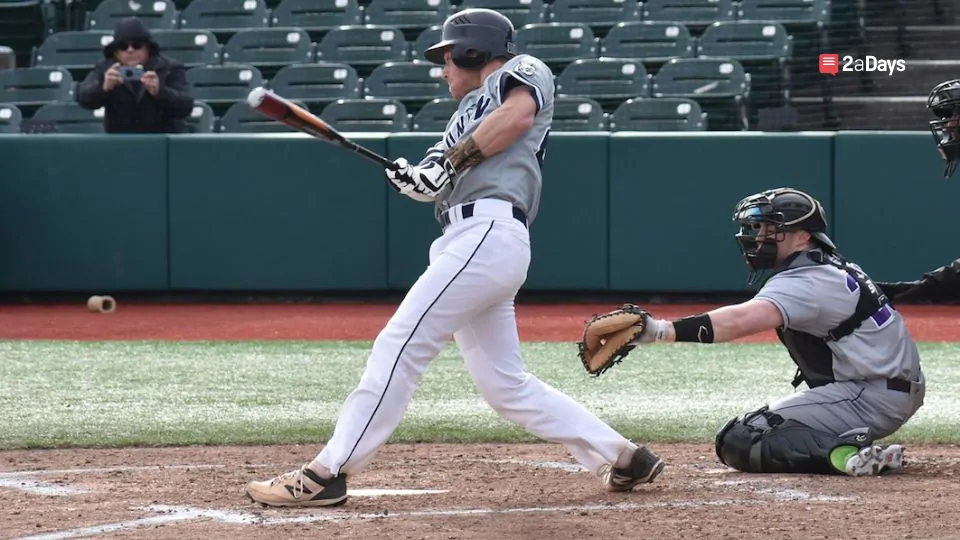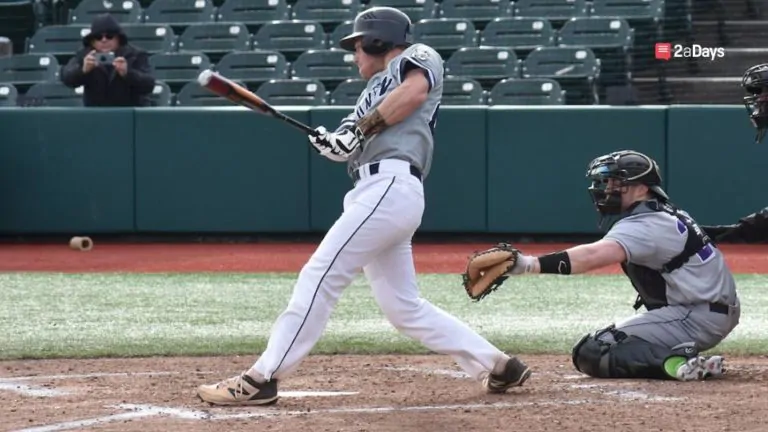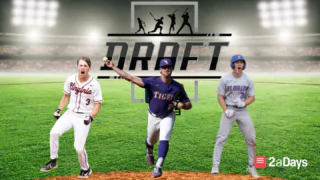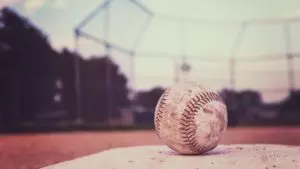Come backevery Thursday for Athlete Interviews on college recruiting and advice!
Just off the Canadian border in upstate New York lies SUNY Canton, home of the Kangaroos. The D3 baseball program has featured catcher Brett Hoberman for the past three years. He is far from home and is traveling from Florida. He has had to work his way up to a starting role while gaining his degree in Sport Management. Brett finally achieved that consistently last year while starting in over 30 games. Now, as a senior, he looks toward his final season and is happy to sit down and do an interview with 2aDays to give the upcoming generation an insight on college baseball.
2aDays: When was the pivotal moment when you knew you would be able to play college baseball?
Brett: My junior year of high school. Based on my talents, my teammates' talents, and reaching out to coaches and scouts. They started to respond and that they wanted to stay in contact with me. Before that, all I would think about was winning the next game. Once they started responding to me my future in baseball became my focus.
Related: Rate your Coaches, Facilities, and Campus Visits
2aDays: Out of all the colleges you could have played for, why SUNY Canton?
Brett: “t was a baseball option for me. I really wanted to play in college, and it was getting down to crunch time, so I chose to play in the state I was born in, New York. I still have friends and family living around the city that I visit on my drives to and from school. It's colder, but baseball is baseball.
2aDays: Can you talk a little bit about the first person who recruited you, did you reach out to him or did they seek you out? How can a high school athlete get on the radar of the Canton coaches?
Brett: I had not been in contact with the coach. A friend of mine helped out and connected me with him. My friend knew the coach and helped me get his attention. To get on a coach's radar, you need more than talent. You have to be open to schools that weren't originally on your radar. Make videos and reach out to the schools you are interested in. Talk to other players and use them to meet new coaches. Talent only matters to a coach if they see it.
2aDays: How did the recruitment staff influence your college decision process?
Brett: The coaches talk to you, and they say whatever they can to get you to come on visits. They have researched you and have seen your videos by the time you meet them. It makes coming to a new place more comfortable, but I also learned that recruitment could be like a sales pitch. They influenced me a lot because it made me see who really wanted me to play for them and who was not trying.
2aDays: What is the best piece of advice that you can offer high school athletes who are looking to play at the next level?
Brett: Focus on you. It works in game situations and life. If you are a pitcher, don't try to pitch 95 if you sit at 90. If you overdo it, you lose your tempo, your composure, and you get injured or make mistakes. Control what you can control. Don't worry about the umpire, the weather, play your heart out. That is what it takes mentally to play in college.
2aDays: Knowing that the NCAA rules for baseball are different than those of other sports, were you diligent when it came to learning the NCAA recruitment rules and if so how did you learn them?
Brett: We only have a certain amount of time to talk to coaches who are recruiting us when we are in high school. They have to reach out to you first, but there are some other points where you are allowed to reach out first. I did a lot of research myself. I wanted to be sure, so I was on the NCAA website whenever I was going to interact with a coach. DIII isn't as strict, and they don't have as many rules as DI.
2aDays: If you could do the recruitment process all over again what is the one thing that you would change?
Brett: I would have reached out to more colleges than I did. I would email colleges back in the day, and now I can see that I could have done more. There are so many options out there. I would get responses a lot of the time from coaches and scouts from schools I never visited. It was not that hard either. I would definitely recommend that.
2aDays: What would you say is the most significant difference between competing at the collegiate level compared to the high school level?
Brett: The biggest difference is speed and size. Guys are bigger, faster, and stronger. Very few of the players peaked in high school, so everyone is still getting better from freshman through senior year. The atmosphere also changes completely. For me, I also changed from south Florida to upstate New York. Class time in college is less, but I spend much more time with my team, so it was easier to adjust in the beginning. I also manage my time as a student-athlete by taking some classes online. It frees up my schedule for practice. I had a set schedule in high school.
2aDays: What is your favorite college baseball memory?
Brett: My first hit. Freshman year the team took a trip to Puerto Rico for a preseason tournament. We were down a run, and I went in to pinch hit. It was my first collegiate at-bat and I knocked in the tying and go-ahead run. It was hype. I felt like I had proven myself worthy of playing in college during my first at-bat. That took a lot of pressure off my shoulders and made me closer with the older guys on the team too.
2aDays: What was the best piece of advice that a coach has given you?
Brett: Play every game like it's your last. Never give up. Don't take any moments for granted. I've heard it all. My coaches know me and they know that is the most important part of advice. I trust who it is coming from and that is more important. If you don't trust the guy telling you what play to run, how can you trust him when he gives you strategy or off-the-field advice?
2aDays: What is the craziest thing that happened out on the field while playing baseball?
Brett: A few years ago during the preseason in Florida, there was a ball hit up the middle while my team was in the field. Both the shortstop and second baseman dove to stop the grounder and went straight into each other. One of them got up right away, but the other was not fine. His forearm was like broken and swollen and bleeding. Nasty stuff. Some people don't think baseball is dangerous but in reality, it is really dangerous, and there are some bad injuries.
2aDays: What is your go-to meal after a big game?
Brett: I like steak and chicken. I usually cook it myself. Put a little steak seasoning on the steaks. I love meat after a long game. I also don't eat before games, so I need double meat to get my energy and protein levels up after.
2aDays: Do you think you would be a good college recruiter?
Brett: Yes. I've been playing baseball since I was four years old. I've grown up around scouts and have learned what talent looks like from them. You also have to talk to recruits, know their personalities, and watch them live when they don't know you are watching to get to know them. Watching multiple games is the best way to know a player. I learned this, know how young baseball players think, and love the game.
Have a story idea or know an awesome athlete/coach we should interview? Email us at [email protected]
* Originally published on June 9, 2022, by Griffin Rubin







